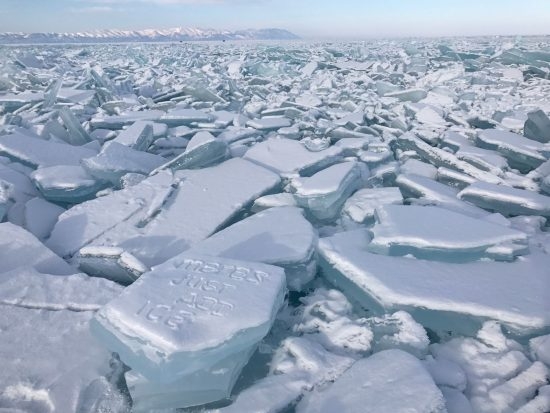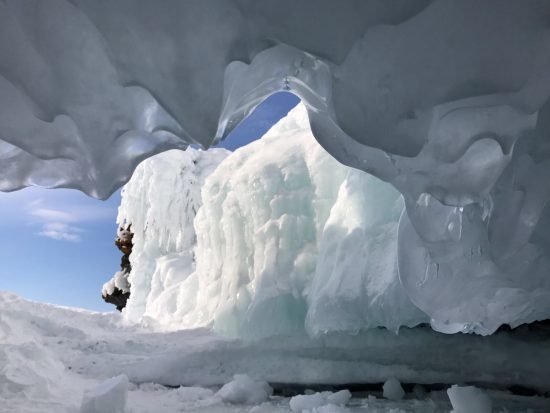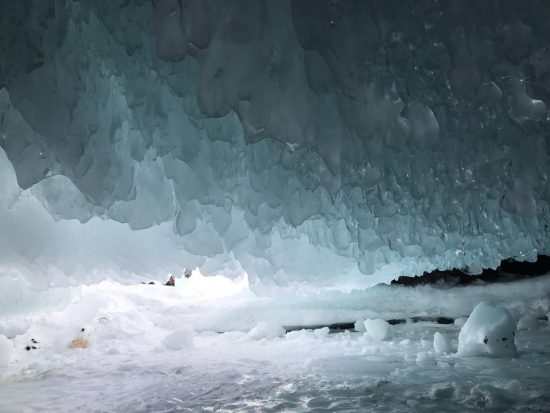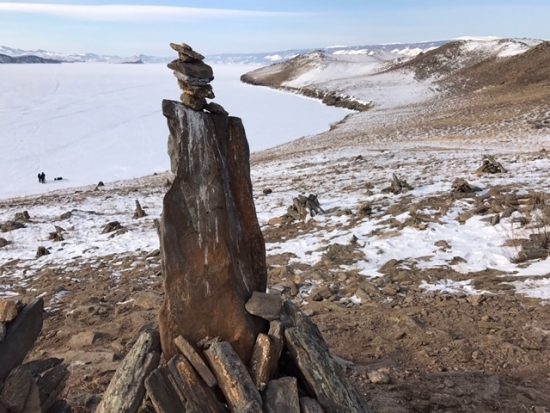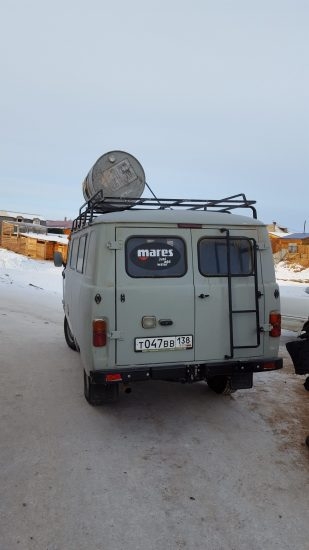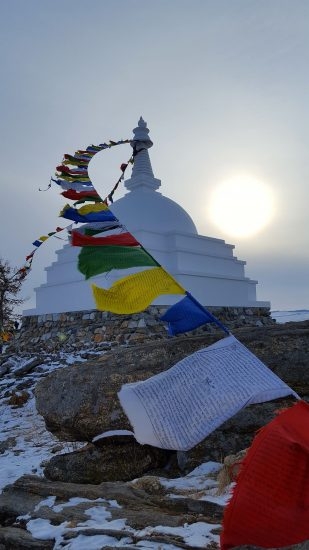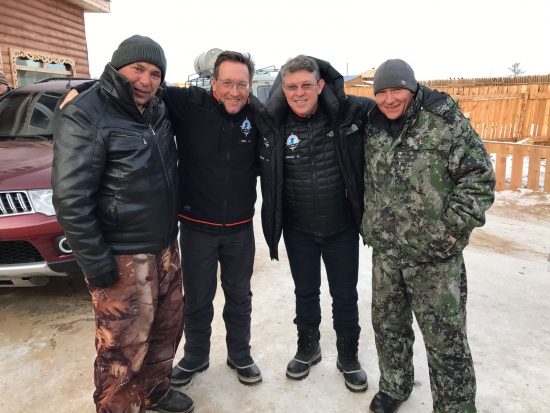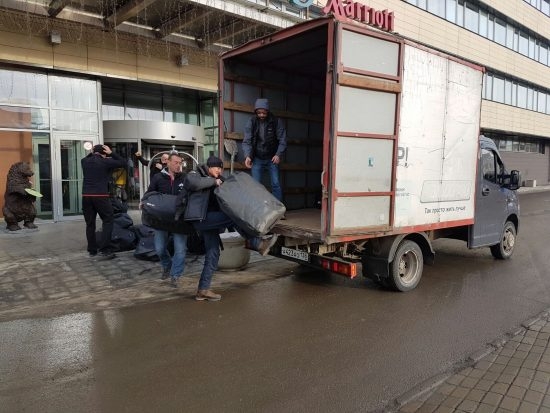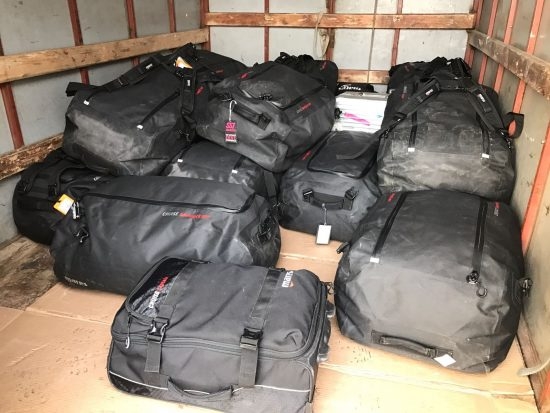Day 9 and 10 – Heavy to handle
February 23, 2017The day started the same as usual, but just up to the point where we loaded up our 4x4’s, because the plan on day 9 was to head back to Irkutsk without any diving. It was hard to believe that our expedition had already come to an end. Everybody seemed a bit sad that there was no chance of going diving once more in this stunning underwater world. You could see by the look on everybody's faces that the mood was not the best. The fact that we had slept an average of 5-6 hours per night did not help to improve our mood either. It was heavy to handle…
Despite this we did not want to miss a second of the trip, so we headed back to Irkutsk, and after a couple of minutes driving our faces lit up and we enjoyed the tremendously beautiful, unique landscape of Lake Baikal in the winter once more.
On our way we stopped at a small rock in the middle of the lake that hosts a so-called Stopa, a "holy grail", which are often seen in pictures and documentation about Tibet. The natives living at Lake Baikal are Buryats who follow Shamanism and Buddhism depending on the region. This kind of Stupa is used to pray for the release of diseases, worries and troubles. As a ritual, to release diseases/worries/troubles from your soul, you are requested to bring one or more stones to the Stupa that crowns the highest point of the rock. Our stones were light and small since our souls had been full of positive momentum due to the 9 incredible days we had had.
If we had serious worries, we would have had the to walk on our knees around the Stupa 108 times to release them. Since we were all quite exhausted after the days on and under the ice we were happy that none of us needed to do this routine. The speed would have probably been so slow that we would have lost our flight the next day in Irkutsk. Instead we used the Stupa to thank Buchan the protector and Holy Ghost of Lake Baikal once more that our expedition had gone well and everybody was going home safe and healthy.
Before getting to the mainland we stopped at a narrow ice cave and took some last pictures of the beautiful turquoise ice which we had been part of for some days.
On the mainland we change cars and waved our UVA captains away. We had become friends over the past days together. The way to Irkutsk took 4.5 hours by car and went through a landscape of forests and endless farmland, steppe and pasture with horses and cows running around (some even crossed the road) since the temperatures had risen quite a lot to between -5 to -10°C. It looked like the animals were happy in these "warm" conditions.
After driving for an hour almost everybody fell asleep and we all felt exhausted but happy having done and achieved what we had. Getting close to Irkutsk woke us up since the roads were not as good due to heavy traffic. We arrived at rush-hour and civilisation fully hit us. We had returned to a life with traffic jams, busy streets, hotels and comfortable bedrooms with minibars and roomservice 24/7. Very different compared the last days in Olchon. But if we closed our eyes, pictures immediately came flooding back of a simple but strong life connected to nature in, on and around Lake Baikal.
BaikalTek who had been great hosts, guiding and consulting us over the last few days, we shared a great Mongolian dinner in Irkutsk, but then went to sleep early as we needed to head to the airport the next morning. For some of us the flight was too early to be honest, but airplanes do not wait. We had to hurry.
The hotel organized our transfer but we found out that the minibus they had ordered was too small for the number of bags we had to carry with us. No problem. Russians are flexible, and within few minutes we had an additional truck to load our 900kg of equipment on to. Heavy to handle again…
So what remains after all this?
Out of a group of experts in different fields, with very different skills and characters, we formed a team in which each member could rely 110% on the other. Our memories will last a lifetime and each of us has gained new friends or our existing friendships have become even stronger.
The results of the equipment testing were very positive and the data produced will help us to develop new products over the coming years.
The learning curve prior to, during and also after the expedition with regards to training and the organisational aspects of the trip will help us to make things better in the future.
On a personal note, Russia and Siberia will remain in our minds with a different picture to the one we had before coming to Lake Baikal. The friendliness, openness and hospitality of the Buryats has changed the stereotypes we had in our minds about a rather cold Russian culture. We had all been wrong….
We hope that you have enjoyed being with us on this blog and sharing our experiences. As some of us got held up in Moscow due to a missed flight connection we have already started making new plans for our next trip in which we will be doing warmer, though much deeper, dives than the ones we had here…
Stay tuned to the Mares blog in order to hear more about what is coming up next!
